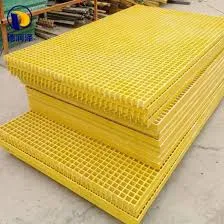
-
 Afrikaans
Afrikaans -
 Albanian
Albanian -
 Amharic
Amharic -
 Arabic
Arabic -
 Armenian
Armenian -
 Azerbaijani
Azerbaijani -
 Basque
Basque -
 Belarusian
Belarusian -
 Bengali
Bengali -
 Bosnian
Bosnian -
 Bulgarian
Bulgarian -
 Catalan
Catalan -
 Cebuano
Cebuano -
 China
China -
 China (Taiwan)
China (Taiwan) -
 Corsican
Corsican -
 Croatian
Croatian -
 Czech
Czech -
 Danish
Danish -
 Dutch
Dutch -
 English
English -
 Esperanto
Esperanto -
 Estonian
Estonian -
 Finnish
Finnish -
 French
French -
 Frisian
Frisian -
 Galician
Galician -
 Georgian
Georgian -
 German
German -
 Greek
Greek -
 Gujarati
Gujarati -
 Haitian Creole
Haitian Creole -
 hausa
hausa -
 hawaiian
hawaiian -
 Hebrew
Hebrew -
 Hindi
Hindi -
 Miao
Miao -
 Hungarian
Hungarian -
 Icelandic
Icelandic -
 igbo
igbo -
 Indonesian
Indonesian -
 irish
irish -
 Italian
Italian -
 Japanese
Japanese -
 Javanese
Javanese -
 Kannada
Kannada -
 kazakh
kazakh -
 Khmer
Khmer -
 Rwandese
Rwandese -
 Korean
Korean -
 Kurdish
Kurdish -
 Kyrgyz
Kyrgyz -
 Lao
Lao -
 Latin
Latin -
 Latvian
Latvian -
 Lithuanian
Lithuanian -
 Luxembourgish
Luxembourgish -
 Macedonian
Macedonian -
 Malgashi
Malgashi -
 Malay
Malay -
 Malayalam
Malayalam -
 Maltese
Maltese -
 Maori
Maori -
 Marathi
Marathi -
 Mongolian
Mongolian -
 Myanmar
Myanmar -
 Nepali
Nepali -
 Norwegian
Norwegian -
 Norwegian
Norwegian -
 Occitan
Occitan -
 Pashto
Pashto -
 Persian
Persian -
 Polish
Polish -
 Portuguese
Portuguese -
 Punjabi
Punjabi -
 Romanian
Romanian -
 Russian
Russian -
 Samoan
Samoan -
 Scottish Gaelic
Scottish Gaelic -
 Serbian
Serbian -
 Sesotho
Sesotho -
 Shona
Shona -
 Sindhi
Sindhi -
 Sinhala
Sinhala -
 Slovak
Slovak -
 Slovenian
Slovenian -
 Somali
Somali -
 Spanish
Spanish -
 Sundanese
Sundanese -
 Swahili
Swahili -
 Swedish
Swedish -
 Tagalog
Tagalog -
 Tajik
Tajik -
 Tamil
Tamil -
 Tatar
Tatar -
 Telugu
Telugu -
 Thai
Thai -
 Turkish
Turkish -
 Turkmen
Turkmen -
 Ukrainian
Ukrainian -
 Urdu
Urdu -
 Uighur
Uighur -
 Uzbek
Uzbek -
 Vietnamese
Vietnamese -
 Welsh
Welsh -
 Bantu
Bantu -
 Yiddish
Yiddish -
 Yoruba
Yoruba -
 Zulu
Zulu
fiberglass pipe flanges
The Importance of Fiberglass Pipe Flanges in Modern Industry
Fiberglass pipe flanges are increasingly gaining popularity in various industrial applications due to their unique properties and advantages. As industries seek durable and reliable solutions for piping systems, fiberglass flanges are emerging as a suitable alternative to traditional metal flanges. Understanding the composition, benefits, and applications of fiberglass pipe flanges is essential for anyone involved in procurement, engineering, or maintenance.
Fiberglass, or fiber-reinforced plastic (FRP), is a composite material made from a polymer matrix reinforced with glass fibers. This combination results in a lightweight yet strong material with excellent resistance to corrosion, temperature extremes, and chemical exposure. In contrast to metal flanges, fiberglass flanges do not rust or corrode, making them ideal for applications where moisture or aggressive chemicals are present.
One of the key benefits of fiberglass pipe flanges is their weight advantage. They are significantly lighter than metal flanges, which simplifies installation and handling. This weight reduction can translate into lower transportation costs and reduced labor expenses during installation, making fiberglass flanges a cost-efficient option in the long run. Furthermore, their lightweight nature allows for the use of smaller and less robust supporting structures, which can also lead to additional savings.
Another significant advantage of fiberglass flanges is their resistance to thermal expansion. Unlike metals that expand and contract with temperature fluctuations, fiberglass maintains its shape and integrity, minimizing the risk of leaks or joint failures. This property is particularly valuable in environments that experience drastic temperature changes, such as chemical processing plants, oil refineries, and power generation facilities.
fiberglass pipe flanges

Moreover, fiberglass flanges offer excellent insulation properties. They are poor conductors of heat, which helps to maintain the temperature of the fluids being transported and reduces energy losses. This insulating characteristic can be particularly beneficial in systems that require precise temperature control, such as those found in pharmaceutical and food processing industries.
Fiberglass pipe flanges are versatile and can be customized to fit various applications. They are available in different shapes, sizes, and pressure ratings, allowing engineers to find the right fit for their specific needs. Furthermore, the manufacturing process of fiberglass allows for creative designs that can enhance the functionality and aesthetics of the overall piping system.
Despite their many advantages, it is essential to recognize that fiberglass flanges may not be suitable for all applications. For example, in high-pressure or high-temperature environments, the structural integrity of fiberglass may be challenged compared to metals. Therefore, engineers must consider the specific requirements of their systems and conduct thorough evaluations before finalizing their material choices.
In conclusion, fiberglass pipe flanges represent a significant advancement in piping technology. Their lightweight construction, corrosion resistance, thermal stability, and insulation properties make them an ideal choice for various industrial applications. As industries continue to prioritize efficiency and sustainability, it's likely that the adoption of fiberglass flanges will grow, further integrating these innovative materials into the fabric of modern engineering solutions. As with any material selection, careful consideration and analysis are crucial to ensure optimal performance and longevity in piping systems.
Latest news
-
Exploring the Benefits of Top Hammer Drifter Rods for Enhanced Drilling PerformanceNewsJun.10,2025
-
High-Precision Fiberglass Winding Machine for GRP/FRP Pipe Production – Reliable & Efficient SolutionsNewsJun.10,2025
-
FRP Pipes & Fittings for Shipbuilding - Corrosion-Resistant & LightweightNewsJun.09,2025
-
Premium FRP Flooring Solutions Durable & Slip-ResistantNewsJun.09,2025
-
Premium Fiberglass Rectangular Tanks Durable & Lightweight SolutionNewsJun.09,2025
-
Tapered Drill String Design Guide Durable Performance & UsesNewsJun.09,2025









